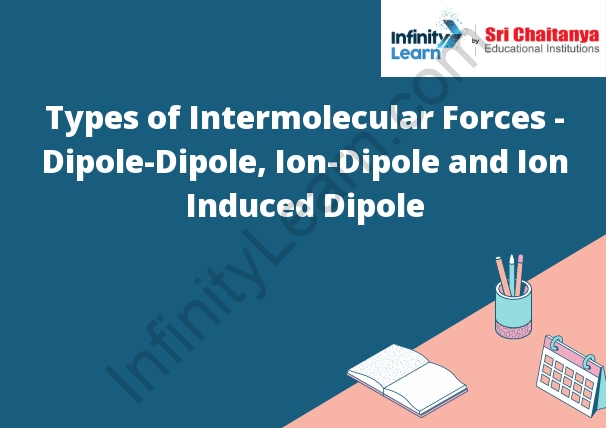Table of Contents
Intermolecular Forces
Intermolecular forces are the forces that exist between molecules. There are four types of intermolecular forces: dispersion forces, dipole-dipole forces, hydrogen bonding, and ion-dipole forces.
Dispersion forces are the weakest of the four types of intermolecular forces. They are caused by the random fluctuations of the electron distribution in molecules. Dispersion forces are weak because they involve the interaction of only a few electrons.
Dipole-dipole forces are caused by the interaction of the positive and negative ends of polar molecules. These forces are relatively strong and occur when the positive and negative ends of two molecules are close to each other.
Hydrogen bonding is the strongest of the four types of intermolecular forces. It is caused by the interaction of a hydrogen atom with a nitrogen, oxygen, or fluorine atom. Hydrogen bonding occurs when the hydrogen atom is attached to a highly electronegative atom.
Ion-dipole forces are caused by the interaction of ions with polar molecules. These forces are weaker than hydrogen bonding but stronger than dispersion forces.

Different Types of Intermolecular Forces
There are four types of intermolecular forces: ion-dipole, dipole-dipole, hydrogen bonding, and London dispersion forces.
Ion-dipole forces are the result of the attraction between a polar molecule and an ion. The polarity of the molecule creates a region of positive charge around the nucleus, and a region of negative charge near the electron cloud. The ion has an overall positive charge, which attracts the negative region of the molecule.
Dipole-dipole forces are the result of the attraction between two polar molecules. The positive and negative regions of each molecule attract the positive and negative regions of the other molecule. This force is strongest when the molecules are close together, and weakest when they are far apart.
Hydrogen bonding is the result of the attraction between a hydrogen atom and a nitrogen, oxygen, or fluorine atom. The hydrogen atom donates its electron to the nitrogen, oxygen, or fluorine atom, which creates a polarity in the molecule. The positive region of the molecule is attracted to the negative region of the other molecule, and vice versa. Hydrogen bonding is stronger than dipole-dipole forces, and is responsible for the high boiling points of water and ammonia.
London dispersion forces are the weakest type of intermolecular force. They are the result of the random fluctuations of electron density in a molecule. When two molecules come close together
Dipole-Dipole Interaction
A dipole is an object that has a positive end and a negative end. When two dipoles are placed close together, the positive end of one will attract the negative end of the other. This is known as the dipole-dipole interaction.
Ion-Dipole Interaction
The ion-dipole interaction is a type of force that arises between an ion and a molecule that has a dipole. The interaction is strongest when the ion and the dipole are aligned, and decreases as the angle between them increases. The interaction is responsible for the attraction between a positive ion and a negative molecule, and between a negative ion and a positive molecule.
Ion Induced Dipole Interaction
Ion induced dipole interaction is the interaction between an ion and a molecule. This interaction is caused by the electron cloud of the ion being distorted by the electric field of the nucleus. This distortion creates a dipole in the electron cloud, and the strength of this dipole depends on the charge of the ion and the distance between the ion and the molecule.






